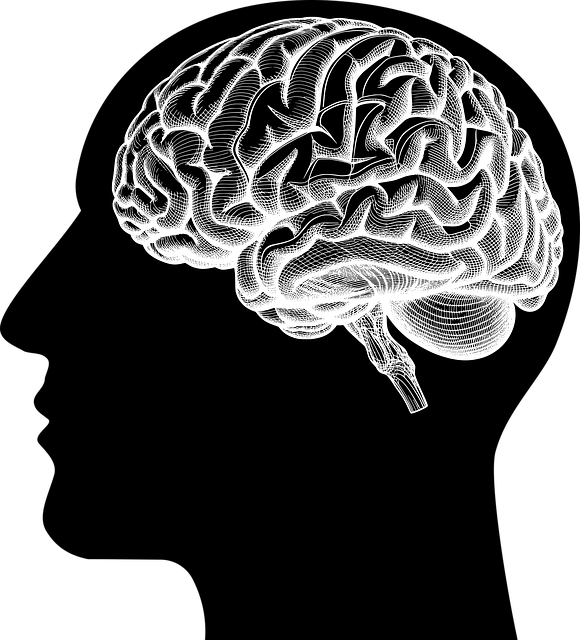Positive Thinking als Therapieform für Deutschsprachige Erwachsene konzentriert sich auf die Macht positiver Aussagen und Selbstgespräche, um psychische Gesundheit zu verbessern. Durch Identifizierung und Herausforderung negativer Gedankenmuster wird Stimmung, Motivation und Stressreduktion gefördert. Diese Methode kann traditionelle Therapien ergänzen und Coping Skills bieten, um moderne Lebensherausforderungen zu bewältigen. Schlüsseltechniken umfassen offene Gespräche, Mindfulness-Übungen, Gratitude-Journaling, soziale Fähigkeiten-Training und Stressmanagement-Workshops. Regelmäßige Praxis dieser positiven Denkstrategien führt zu langfristiger mentaler Gesundheit. Therapie für Erwachsene Deutschsprachige passt diese Methoden an individuelle Bedürfnisse und kulturelle Hintergründe an, um Resilienz und emotionale Intelligenz zu stärken.
Positive thinking exercises offer a powerful tool for German-speaking adults seeking mental well-being. This article delves into the transformative potential of positive thinking, guiding readers through its benefits and practical implementation. We explore how identifying negative thought patterns forms a crucial step in therapy, followed by actionable exercises to cultivate a positive mindset. Additionally, we provide strategies for incorporating daily routines and overcoming challenges to maintain positivity on one’s therapeutic journey.
- Understanding Positive Thinking and its Benefits for German-Speaking Adults
- Identifying Negative Thought Patterns: A Key Step in Therapy
- Practical Exercises to Cultivate a Positive Mindset
- Incorporating Daily Routines for Consistent Positive Thinking Practice
- Overcoming Challenges: Tips for Maintaining Positivity in Therapy
Understanding Positive Thinking and its Benefits for German-Speaking Adults

Positive Thinking als Therapieform für Deutschsprachige Erwachsene
Positive Gedanken sind mehr als nur optimistische Verklärungen von Situationen – sie stellen eine wirksame Strategie zur Verbesserung der psychischen Gesundheit dar. Für deutschsprechige Erwachsene kann die Anwendung positiver Denkweisen einen bedeutenden Unterschied in ihrem Alltag bewirken. Im Gegensatz zu herkömmlichen Therapieformen, wie z.B. kognitive Verhaltenstherapie, konzentriert sich diese Herangehensweise auf die Kraft der Wahrnehmung und des Selbstgesprächs. Indem man lernen, positive Aussagen zu formulieren und negative Gedankenmuster zu erkennen und zu ersetzen, können Erwachsene ihre Stressresistenz stärken und ihre allgemeine Lebenszufriedenheit steigern.
Die Vorteile sind vielfältig: Verbesserte Stimmung, gesteigerte Motivation, reduzierter Stress und eine bessere Fähigkeit zum Umgang mit Herausforderungen gehören zu den häufig beobachteten Effekten. Die Implementierung von positiven Denken-Übungen kann auch als ergänzende Maßnahme zur traditionellen Mental Health Policy Analysis und Advocacy dienen. Durch die Förderung von Coping Skills Development erhalten deutsche Erwachsene ein wertvolles Werkzeug an die Hand, um mit den Belastungen des modernen Lebens besser umzugehen.
Identifying Negative Thought Patterns: A Key Step in Therapy

Identifying negative thought patterns is a fundamental step in therapy for adults speaking German. Many individuals struggle with self-critical thoughts or a tendency to dwell on failures, which can significantly impact their emotional well-being and daily functioning. Therapists play a crucial role in guiding clients to recognize these unhelpful cognitive processes. Through open conversations and specific techniques like mindfulness exercises, therapists help patients become more aware of their thinking patterns.
By understanding the recurring negative thoughts, individuals can begin to challenge them and replace them with more positive and realistic perspectives. This process is essential for improving emotional regulation, preventing burnout, and enhancing overall mental health. Moreover, learning conflict resolution techniques during therapy empowers adults to navigate challenging situations more effectively, fostering healthier relationships and a greater sense of control over their lives.
Practical Exercises to Cultivate a Positive Mindset

Cultivating a positive mindset is an accessible and powerful tool for improving overall well-being. Practical exercises like gratitude journaling have proven to be highly effective in therapy for adults speaking German. Dedicating just a few minutes each day to writing down three things you’re grateful for can shift your perspective, fostering appreciation for life’s simple joys. This exercise not only enhances positive thinking but also improves mental resilience by encouraging individuals to focus on the abundant aspects of their lives.
Additionally, social skills training and stress management workshops can significantly contribute to risk management planning for mental health professionals. These initiatives empower individuals to navigate challenging situations with equanimity, enhancing their ability to provide compassionate care. Engaging in regular practice sessions, whether through organized workshops or self-directed techniques, ensures that these positive thinking strategies become ingrained in one’s daily routine, leading to lasting mental health benefits.
Incorporating Daily Routines for Consistent Positive Thinking Practice

Incorporating daily routines is a powerful strategy to cultivate consistent positive thinking practices. Dedicating just a few minutes each day to reflect and reframe thoughts can significantly impact one’s overall well-being, especially for adults navigating life’s challenges. Starting the day with a positive affirmation or ending it with a gratitude list are simple yet effective ways to train your mind over matter. This process involves acknowledging negative thoughts without judgment and actively replacing them with more uplifting ones. By making these practices a regular part of one’s routine, individuals can enhance their resilience and emotional intelligence, leading to improved mental health outcomes.
For those seeking additional support, therapy for adults speaking German offers specialized services tailored to individual needs. Healthcare providers trained in cultural competency training understand the importance of Cultural Sensitivity in Mental Healthcare Practice, ensuring that treatment methods resonate with diverse backgrounds. Incorporating these principles into daily routines allows individuals to embrace positive thinking while respecting and embracing their unique cultural identities.
Overcoming Challenges: Tips for Maintaining Positivity in Therapy

Overcoming Challenges is a significant aspect of therapy for adults, especially those who speak German. Maintaining positivity during therapy sessions can greatly enhance the therapeutic process and overall mental health awareness. To foster this, therapists should encourage clients to adopt positive thinking strategies that align with mind over matter principles. This involves helping them reframe negative thoughts and focusing on solutions rather than problems.
Additionally, creating a supportive environment where clients feel comfortable expressing their emotions is crucial. Therapists can also incorporate techniques such as mindfulness exercises, gratitude practices, or even humor to boost positive emotions. By integrating these strategies, therapy for adults speaking German can effectively navigate challenges, promoting mental well-being and empowering individuals to embrace mental health awareness in their daily lives.
Die Implementierung von positiven Denkenübungen kann eine transformative Reise für Deutschsprachige Erwachsene sein, die nach einem effektiveren Umgang mit Stress und Herausforderungen suchen. Durch das Erkennen und Umgestalten negativer Gedankenmuster, die oft die Wurzel vieler psychischer Probleme sind, können Individuen ihre mentale Widerstandsfähigkeit stärken. Die in diesem Artikel vorgestellten Übungen bieten praktische Werkzeuge, um ein positiveres Denken zu fördern und so die allgemeine Lebensqualität zu verbessern. Mit täglicher Praxis und Überwindung von Hindernissen können deutsche Erwachsene eine nachhaltige Verbesserung ihrer psychischen Gesundheit in der Therapie anstreben.












